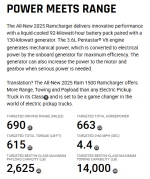That’s been the conundrum for many of us ever we started looking at camping rigs.
A long time ago we had to decide to not worry about gas prices and just bite the bullet on those costs, to be able to have the necessary 3/4 ton HD or 1 ton truck with enough capacity to carry the big campers we wanted to go out exploring in.
This summer and fall we covered about 5000 miles and
a couple of times found regular gas at less than three dollars a gallon ….and that was traveling through the far west. It might not be a surprise to see those “low” prices in the midwest or southeast but in the far west that definitely was a happy discovery.
The big challenge (budget wise) traveling in the west is to
try to stay out of California, Oregon and Washington because gas prices are so much higher there. (And no mods, this is not a political comment, it is just a comment on the difference in fuel prices in the US

).
Anyway basically, if you want a roomy and well outfitted rig, you have to
bite that bullet and factor in the higher cost of fuel for any of your big trips as you budget your total expenses.
Planning ahead for gas costs can be very unpredictable because of unexpected price fluctuations, so you also have to
be ready to cut back on other expenses if necessary, to afford the high cost of your gas consumption.
Philosophically, we have had to decide to just to
treat that expense like the cost of everything else involved in travel. The price per gallon for propane has doubled, new tires are crazy expensive, food costs are insane, and camping fees in some areas have tripled over the last 10 years.
Really,
other than staying home, there’s just not much we can do about this if we want to get out with our family and explore the grandeur of North America while we’re still healthy enough to experience some of these more remote areas by hiking, biking, or in a canoe or kayak, etc.

